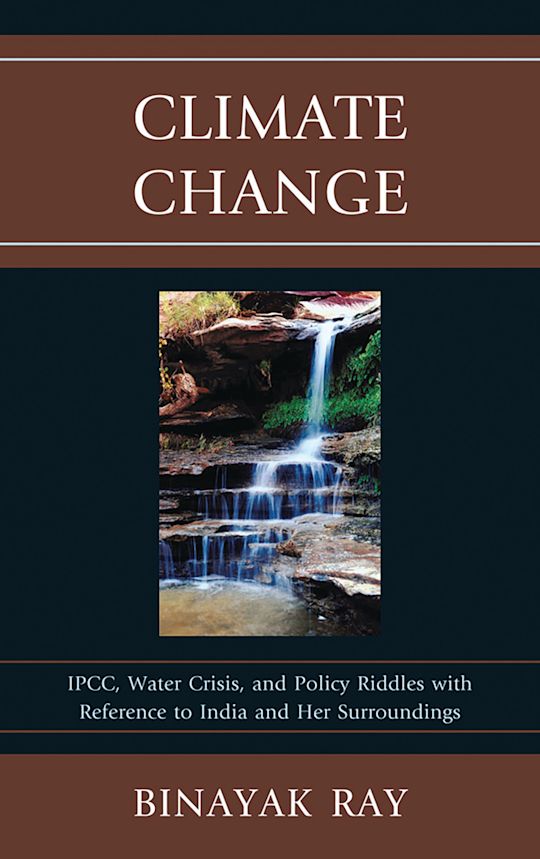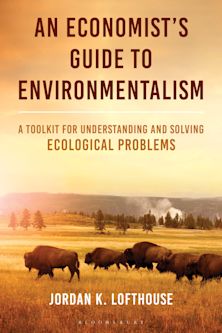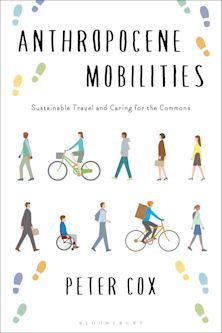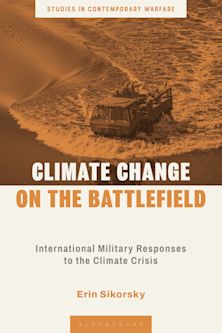- Home
- ACADEMIC
- Politics & International Relations
- Environmental Politics
- Climate Change
Climate Change
IPCC, Water Crisis, and Policy Riddles with Reference to India and Her Surroundings
Climate Change
IPCC, Water Crisis, and Policy Riddles with Reference to India and Her Surroundings
This product is usually dispatched within 10-14 days
- Delivery and returns info
-
Free UK delivery on orders £30 or over
You must sign in to add this item to your wishlist. Please sign in or create an account
Description
Notwithstanding denials by climate-skeptics, the global scientific community considers the world environment is rapidly worsening. They argue that failure to adopt measures to reduce CO2 gas emission in the atmosphere could lead to disastrous social-economic, politico-security and environmental consequences. Skeptics argue that climate changes are due to nature's own cyclical phenomenon. They fail to understand that climatology as a scientific discipline is in its infancy, but overwhelming evidence suggests that human activities are responsible for this. Smart campaigning and some mistakes by the IPCC in its 2007 report enabled skeptics to derail the efforts to adopt a legally binding CO2 emission target in Copenhagen in 2009.
Global political leadership collectively failed to rise above their narrow national interest in Copenhagen. Last moment efforts led to a resolution, but a resolution without vision or teeth. Given large socio-economic differences between countries, a legally binding CO2 reduction resolution is anathema to many countries. The leadership failed to understand that "one size prescription would not fit all," as internal political compulsions dominate countries' policy position on climate change issues.
South Asia is politically complex. The political and economic rivalry between China and India impacts differently on policy cooperation issues in regional countries, but on climate change issues policy response require a regional approach, as impacts do not stop at political boundaries. Water sharing is critical for India, Pakistan, and Bangladesh. India and Pakistan are virtually water scarce countries and most of Bangladesh's freshwater comes from outside the country. These countries have been using groundwater at an unsustainable rate, and in many parts it requires treatment. Collectively they house largest number of poverty stricken people on earth. Food production is declining; rising food prices are creating a huge fiscal burden. UN Millennium goals remain unachievable. Rising se
Table of Contents
Chapter 2 Chapter 1. Climate Change and the IPCC
Chapter 3 Chapter 2. Climate Change and Freshwater
Chapter 4 Chapter 3. Cold War: Mutual Suspicion and Political Psyche
Chapter 5 Chapter 4. Critical Policy Concerns
Chapter 6 Chapter 5. China: A Key Player, an Enigma, or a Pace Setter in the Climate Debate?
Chapter 7 Chapter 6. Regional Perspectives
Chapter 8 Chapter 7. Copenhagen: Where to Now?
Chapter 9 Chapter 8. A Few Concluding Thoughts
Product details
| Published | 11 Aug 2011 |
|---|---|
| Format | Hardback |
| Edition | 1st |
| Extent | 260 |
| ISBN | 9780739164143 |
| Imprint | Lexington Books |
| Dimensions | 240 x 164 mm |
| Publisher | Bloomsbury Publishing |
About the contributors
Reviews
-
Climate change and water scarcity are emerging as probably the two great challenges of the twenty-first century, with profound social and regional security implications. Binayak Ray brings to bear his considerable experience as bureaucrat, aid official and scholar to address some of the important policy implications of these issues, with specific reference to South Asia and the role of China. This book should be essential reading for policy makers in the region.
R. J. May, Emeritus Fellow, Australian National University
-
Ray has produced an important review and clarification of the scientific evidence and political climate of the ways in which climate change is affecting the approach to the management of water. Although his focus is on India the evidence he assembles and lessons learned have relevance for other regions. I commend this book as a timely contribution to a debate in which we must all engage.
Patrick Troy, Professor Emeritus, Australian National University



































